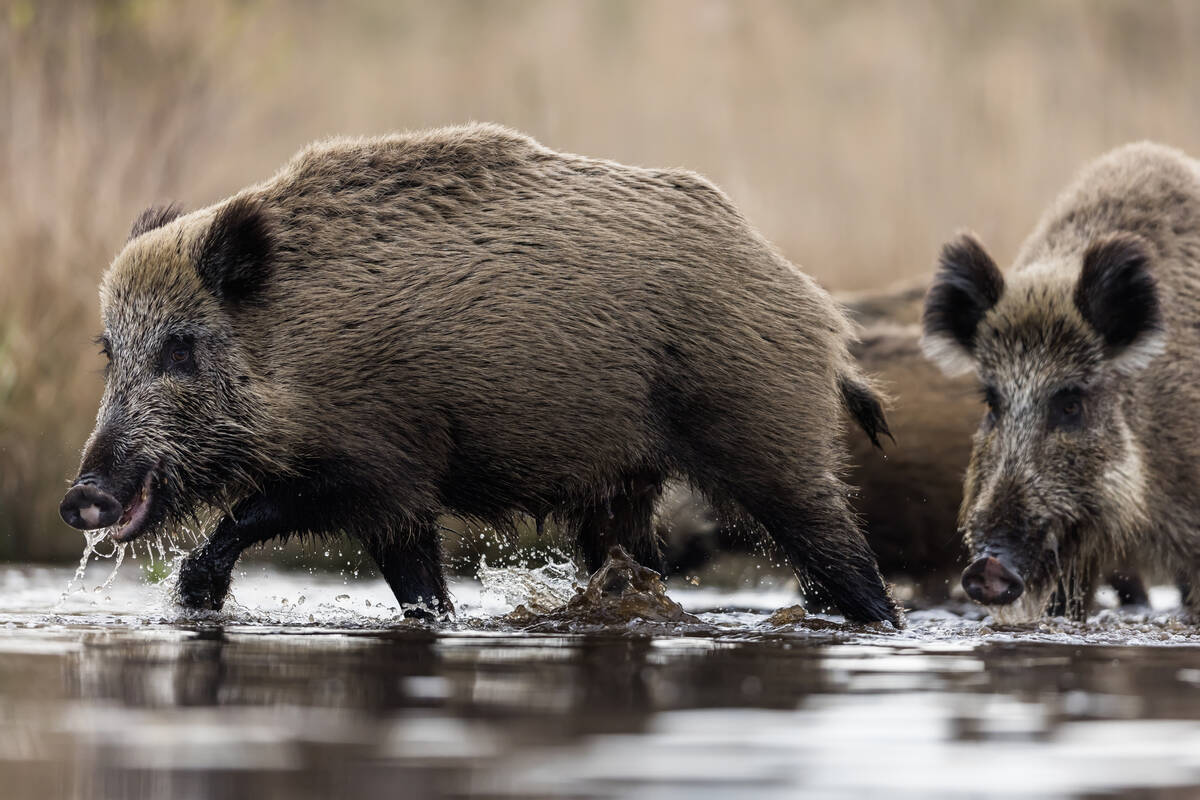Animal welfare policy | Organization’s commitment to phasing out sow stalls unclear
The Manitoba Pork Council appears to be softening its support for ridding the province of sow stalls by 2025.
Chair Karl Kynoch told the council’s recent annual meeting that many people thought the organization’s pledge was for a voluntary phasing out of sow stalls, but all it ever committed to was urging farmers to consider alternatives.
“We’re not telling producers they have to switch by 2025,” Kynoch told reporters at the end of the meeting.
“What we’re doing is telling producers, ‘OK, we’re getting some pressure on this, at least do some research and do some experimentation on alternative housing.’ We’re not saying we’re going to get rid of all the stalls. We’re just saying look at other options.”
Read Also

Manitoba bans wild boar possession
Manitoba has tightened the regulatory status of Eurasian wild boar in an effort to help fight back against invasive wild pigs.
When the council made its pledge in a March 2011 report, it stated: “Manitoba Pork commits to encouraging producers to phase out by 2025 the style of dry sow stalls currently used. New forms of housing must be practical and provide protection to animals and humans alike.”
The report also said Manitoba farmers would continue to follow the national pig code of practice, which is being updated.
The issue of open housing for gestating sows was repeatedly raised at the recent annual meeting, which was filled with reports of financial losses, farm failures and bleak future prospects.
The issue has caused great ferment throughout the developed pig producing world. The European Union is gradually bringing in a ban on gestation stalls, while many major North American food companies say they plan to accept only stall-free pork in the future. Some major hog production companies have already switched to open housing.
The contents of the revised pig code of practice have not been publicly revealed yet, but most industry players believe it will include open housing as a recommended practice.
Florian Possberg, chair of the code process, told the meeting that it has been difficult for his committee to find a consensus to the housing issue because it includes everyone from consumers to farmers.
“It’s been quite a difficult task to find this ground that we can determine is common,” said Possberg.
“There is a very high expectation that we have something that meets the sniff test.”
Large strides have been made in open housing research in North America. The University of Manitoba recently opened a demonstration centre at its Glenlea research farm, and the Manitoba Pork Council has done much work explaining open housing systems. As well, hog industry meetings generally include at least one session on how to operate open housing systems.
However, some in the industry are opposed to ending sow stall systems, believing them to be humane and the best management practice. As well, some believe farmers should receive premiums for moving to open housing to cover the possible costs.
Producer Dan Klippenstein said a new pig code of practice shouldn’t make open housing the norm.
“By voluntarily enforcing a code that becomes a requirement versus a recommendation, we are taking that economic benefit and paying for it for the retailers,” said Klippenstein.
“I am very sure that when it comes to dollars, the retailers will not pay for it.”
Rick Berman from Washington, D.C., who lobbies against the animal rights movement, delighted some in the audience with his recommendation that farmers hold fast to present production methods and refuse to give in to animal activist pressure. Instead, they should start attacking the activists, ridiculing them and attacking their fundraising base.
“Defence loses over time,” said Berman, who claimed that attack ads crippled People for the Ethical Treatment of Animals and that government authorities could be pressured to open fraud investigations of dubious fundraising practices.
“It’s a very simple equation: de-fund your enemy.”
Berman told reporters that it would be a mistake for the pork council to call for voluntarily phasing out sow stalls.
Kynoch responded that the pork council’s apparent support for ending gestation stalls didn’t actually commit farmers to anything other than thinking about the issue.
“We’re not saying switch; we’re saying do the research,” said Kynoch.
“Look into it. If there’s better alternatives and it works better for somebody, switch to it. Deliver the best animal care possible.”















